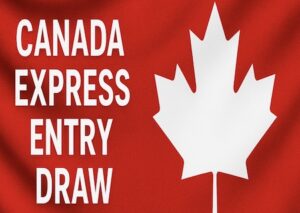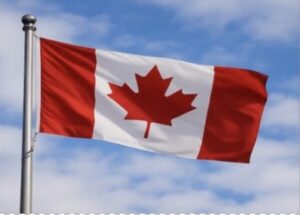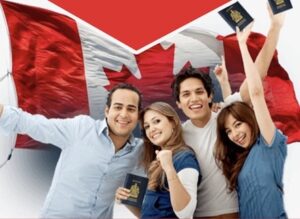Overview of Canada Spousal Sponsorship Program
Canada spousal sponsorship program is part of the family class sponsorship category, designed to help reunite families in Canada. This program allows Canadian citizens or permanent residents to bring their spouse, common-law partner, or conjugal partners to Canada or sponsor them who is already in Canada.However, Canada spousal sponsorship process can be complicated, with numerous eligibility rules, application steps, and waiting periods.
In this blog, we’ll provide a comprehensive guide to Canada spousal sponsorship program. We’ll explain who can apply, how the application process works, common challenges, financial and legal requirements, and what to expect while living in Canada during the application process.
Understanding of Canada Spousal Sponsorship Program
The spousal sponsorship program enables Canadian citizens and permanent residents to sponsor their partners for immigration to Canada. The program aims to promote family unity by allowing partners to live together in Canada, provided they meet specific requirements.
Types of Relationship Covered for Canada Spousal Sponsorship?
The Canada spousal sponsorship program covers different types of relationships, including spouses, common-law partners, and conjugal partners.
Spouses
Under the IRPA and IRP Regulations, a spouse is someone legally married to another person. This legal union must be recognized by Canadian law.
Common-Law Partners
A common-law partner is someone who has lived with the sponsor in a marriage-like relationship for at least one year. This definition includes both opposite-sex and same-sex couples.
Conjugal Partners
Conjugal partner sponsorship applies to couples who, for exceptional reasons such as sexual orientation or religious beliefs, cannot live together. This category also includes those who cannot marry or live together due to other serious barriers.The relationship must show a strong attachment and mutual dependence.
Eligibility Criteria for Sponsors
To be eligible to sponsor a family member for spousal sponsorship in Canada, individuals must meet the following criteria:
- Must be at least 18 years old.
- Must be a Canadian citizen, a person registered in Canada as an Indian under the Canadian Indian Act, or a permanent resident.
- Must reside in Canada.
- Must be able to demonstrate not receiving social assistance for reasons other than a disability.
- Must agree to sign an undertaking, committing to providing financial support for the basic needs of a spouse or partner.
- Can sponsor the person as a spouse if the marriage is a legally valid civil marriage.
Provide the following documents to prove your eligibility
- Passport
- PR Card copy
- Driver’s License for Address Proof.
- Bank statement or job letter to demonstrate your financial well-being and proof of residency in Canada.
- Signed IMM 1344 ‘Application to sponsor, sponsorship agreement and undertaking’ form.
- Marriage Certificate.
Financial Requirements for Sponsoring Your Spouse
Financial requirements play a crucial role in Canada spousal sponsorship process, as sponsors need to demonstrate their ability to provide financial support to their spouse. This is to ensure that the sponsored spouse will not become a burden on the Canadian social assistance system.
Proof of financial stability can include various documents, such as:
- Employment letters
- Bank statements
- Income tax returns
- Pay stubs
- Proof of assets
- Proof of investments
Duration of Financial Responsibility and Legal Obligations for the Sponsor
Sponsors are financially responsible for the sponsored person for three years from the day the sponsored person becomes a Canadian permanent resident.
During this period, sponsors are obligated to provide financial support for the basic needs of the sponsored person, including food, shelter, clothing, and other essential expenses.
Failure to meet these obligations can result in legal consequences, including reimbursement of social assistance benefits.
Select the Class of Sponsorship
This is the crucial step towards fulfilling the requirements for Canada spousal sponsorship, as the selection of documents and proofs depends on the category you choose to apply under.
- If your spouse lives outside of Canada, apply under the Family Class.
- If your spouse lives with you in Canada, apply under Inland Spousal Sponsorship.
- If your spouse is currently living with you in Canada and has plans to travel to their home country, apply under the Family Class.
Preparing Your Application: Essential Documents and Forms
In order to be successful in your application, you need to prove the genuineness of your marriage because As per Section R4.1 of the Immigration and Refugee Protection Regulations (IRPR), a foreign national shall only be considered a spouse, a common-law partner, or a conjugal partner of a person if the marriage, common-law partnership, or conjugal partnership:
- Was not entered into primarily for the purpose of acquiring any status or privilege, or
- Is genuine.
Therefore, include as much proof of your relationship as possible to demonstrate the genuineness of your marriage and show that you are not in the relationship solely to gain status in Canada.
Types of Documents Based on Selected Category
There are different types of documents that can be provided based on the category you have selected.
If you are living together and are applicants inside Canada
Two documents from the following sets of options:
- Joint ownership of residential property or joint residential leases or joint rental agreements listing both the sponsor and the principal applicant.
- Proof of joint utilities accounts (electricity, gas, telephone).
- Important documents for you and your sponsor showing the same address, such as copies of government-issued identification documents: driver’s licenses, insurance policies, etc.
- Important documents for you or your sponsor showing that you are recognized as each other’s spouse (such as employment or insurance benefits).
- Documentary evidence of financial support between your sponsor and yourself.
- Bank or credit card statements for same address proof.
- Other proof that your relationship is recognized by your friends and/or family (e.g., letters, social media information showing a public relationship, etc.).
If you are not living together, provide the following documents for applicants living outside Canada:
- Letters, printed text messages, call logs, emails, or social media conversations between you and your sponsor.
- Proof of your sponsor’s visits, such as airline ticket coupons or used boarding passes, photocopies of pages of the passport for your sponsor showing entry-exit stamps supporting visits.
- Other proof that your relationship is recognized by your friends and/or family (e.g., letters, social media information showing a public relationship, joint bank account, or tax/employment benefits copy, etc.)
Required Documents for All Categories
The documents that should be included regardless of the category are:
Documents for Principal Applicant
- Copy of passport
- Two PR card photos; Specifications available at https://www.canada.ca/en/immigration-refugees-citizenship/services/new-immigrants/pr-card/apply-renew-replace/photo.html
- Birth certificate translated and notarized if not in English.
- Police certificate from the home country.
- Education and work history details
- Status Proof for applicants applying within Canada. However, if your spouse is currently out of status, they may still be eligible to apply under the current facilitative measure “Public Policy Under A25(1) of IRPA to Facilitate Processing in accordance with the Regulations of the Spouse or Common-law Partner in Canada Class.”
Documents for Marriage/Relationship Proof:
- Marriage photos
- Engagement photos
- Photos after marriage visiting different places
- Hotel bookings or trip booking receipts for honeymoon (if applicable)
- Relationship Letter detailing the day you met and how your relationship progressed
Complete the Sponsorship Application Forms and Attach the Required Documents
Complete the Canada spousal sponsorship application forms accurately and thoroughly, providing all the required information.
- Application to sponsor, sponsorship agreement, and undertaking form (IMM1344)
- Generic application form for Canada (IMM0008)
- Document checklist form (IMM5533)
- Family Information form (IMM5406)
- travel history form (IMM5532)
- use of representative (IMM 5476), If applicable
- background information (IMM5669)
- Relationship Evaluation Form (IMM 5532)
Pay the fees
When applying for Canada spousal sponsorship application, there are several government fees that need to be paid. These typically include:
- Principal Applicant Processing Fee: $545
- Right of Permanent Residence Fee (RPRF): $575
- Biometrics Fee: $85 (if required)
These fees are subject to change, so it’s important to check the latest fee schedule on the official Immigration, Refugees and Citizenship Canada (IRCC) website before submitting your application.
Submission Guidelines: Where and How to Submit
Once you have gathered all the necessary documents and completed the forms, it’s time to submit your spousal sponsorship application.
Applications can be submitted online through the PR portal and will automatically be directed to the appropriate processing centre based on the category you selected.
For inland spousal sponsorship, the case processing centre is located in Mississauga, Ontario. For outland spousal sponsorship or family sponsorship, the centre is in Sydney, Nova Scotia.
Common Challenges in Canada Spousal Sponsorship Applications
While spousal sponsorship can be a straightforward process, there are common challenges that applicants and sponsors may encounter. These challenges can cause delays in the application process or even result in a refusal. It is important to be aware of these challenges and address them appropriately.
Some common challenges in spousal sponsorship applications include:
- Delays in application processing
- Past criminal record
- Complicated situations involving former spouse or children
- Ineligibility due to spousal sponsor bar
- Dealing with application refusals
Addressing Application Delays
One of the most common challenges is application delays. The processing time for spousal sponsorship applications can vary depending on various factors. High application volumes, incomplete documentation, or the need for additional information can all contribute to delays in the processing of applications.
Here are some tips for addressing application delays for your Canada spousal sponsorship application:
- Stay informed: Keep track of the processing times for spousal sponsorship applications and be aware of any changes or updates in the immigration system.
- Follow instructions carefully: Ensure that you have included all the required documents and information as per the application guidelines. Missing or incomplete documents can lead to delays or refusals.
- Seek expert advice: If your application is delayed or you have any doubts regarding your application, consulting an immigration consultant or lawyer experienced in Canada spousal sponsorship applications can provide valuable guidance and support.
Criminal record
When sponsoring a spouse, any criminal record or security risk they pose can affect the application process.
If the crime happened within the last five years, the spouse should undergo rehabilitation application. However, if it’s been 10 years or more, they will be considered deemed rehabilitated.
All necessary documents for rehabilitation, including a police clearance certificate, should be included.
Understanding Rehabilitation Process
The table below, provided by Canada Immigration, explains when a person may be deemed rehabilitated (meaning no application is required) and when they must apply for rehabilitation.
| Type of Conviction or Offence | When You Are Deemed Rehabilitated (No Application Needed) | When You Must Apply for Rehabilitation |
|---|---|---|
| Single indictable offence outside Canada (if the equivalent offence in Canada has a prison term of less than 10 years) | At least 10 years after completing the sentence | 5 years after completing the sentence |
| Single indictable offence outside Canada (if the equivalent offence in Canada has a prison term of less than 10 years, but no sentence was given) | At least 10 years after the offence was committed | 5 years after the offence was committed |
| Serious indictable offence outside Canada (if the equivalent offence in Canada has a prison term of 10 years or more) | Not applicable | 5 years after completing the sentence or the offence was committed |
| Two or more indictable offences outside Canada | Not applicable | Must apply for a record suspension (formerly a pardon) |
| Two or more summary conviction offences outside Canada | At least 5 years after completing all sentences | Not applicable |
| Two or more summary conviction offences in Canada | At least 5 years after completing all sentences | Must apply for a record suspension (formerly a pardon) |
Handle Complex Situations
Complex situations in Canada spousal sponsorship applications, such as previous marriages and children, requires careful attention to detail and understanding of the specific requirements
- Dependent child sponsorship: If you have dependent children from a previous relationship, you may need to provide additional documents to establish their relationship to you and their eligibility for sponsorship.
- Previous marriage: If either the sponsor or the applicant has been previously married, documents such as divorce certificates or annulment papers may be required to demonstrate the dissolution of the previous marriage.
Spousal Sponsorship Bar
Under the Canada spousal sponsorship program, there are certain restrictions on sponsoring your spouse.
The “3-year bar” typically refers to situations where someone has previously sponsored a partner for Canadian permanent residency, and that partner later became a permanent resident. In such cases, the sponsor is usually unable to sponsor a new partner for a period of five years from the day the previous partner became a permanent resident.
The “5-year bar,” on the other hand, can apply to individuals who have been sponsored as a spouse, common-law partner, or conjugal partner for Canadian permanent residency and later became permanent residents themselves. If they wish to sponsor a new partner afterward, they may face a five-year bar from the day they became a permanent resident.
Addressing application refusals
Despite careful preparation, Canada spousal sponsorship applications may sometimes be refused by immigration authorities. It is essential to understand the reasons for refusal and take appropriate steps to address them.
Reasons for refusal
Common reasons for application refusals include incomplete documentation, discrepancies in information provided, or concerns about the genuineness of the relationship. Understanding the specific reasons for refusal is crucial in determining the accurate steps.
Steps to appeal
In case of a refusal, applicants have the option to appeal the decision to Immigration Appeal Division (IAD) of the Immigration and Refugee Board of Canada (IRB). This typically involves providing additional evidence or documentation to address the concerns raised by immigration authorities. Seeking legal advice and assistance during the appeal process can be beneficial in presenting a strong case. For more details on the appeal process, visit the Immigration Appeal Division website.
Please note that only the applicant applying from outside Canada has a right to appeal to Immigration Appeal Division under section IRPA 63 (1)
Living in Canada During the Application Process
The Canada spousal sponsorship application process involves various stages and can take several months to complete. During this time, the sponsored person may choose to reside in Canada.
Below are some key considerations:.
Open Work Permit
One significant advantage of living in Canada during the spousal sponsorship application process is the opportunity to obtain an open work permit. This type of work permit allows the sponsored person to work for any employer in Canada while their sponsorship application is being processed.
To be eligible for an open work permit, the sponsored person must meet following criteria:
- be a spouse or common-law partner of a Canadian citizen or permanent resident
- must have received Acknowledgement of Receipt (AOR) for their spousal sponsorship application
- must reside in Canada
Temporary visa
If the sponsored person is already living in Canada with a valid temporary visa, such as a visitor visa or a study permit, they can continue to reside in the country while their sponsorship application is being processed.
While holding a temporary visa, the sponsored person must ensure that they comply with the conditions of their visa, such as not exceeding the authorized duration of stay and refraining from engaging in unauthorized employment.
Preparing for the Interview Process
As part of the spousal sponsorship application process, some applicants may be required to attend an interview with an immigration officer. Here are some tips for preparing for the interview process:
- Review your application:Take time to go through your spousal sponsorship application thoroughly. Be ready to discuss the details of your relationship and provide explanations for any supporting documents.
- Be honest and concise: During the interview, provide clear and truthful answers to the immigration officer’s questions. Stay focused on the relevant information and avoid unnecessary details.
- Practice common questions:Look into typical questions asked during Canada spousal sponsorship interviews and practice your responses. This will help you feel more confident and articulate during the actual interview.
By preparing for the interview process, applicants can increase their chances of a successful spousal sponsorship application and demonstrate the genuineness of their relationship to the immigration officer.
Conclusion
In conclusion, understanding the complexities of Canada Spousal Sponsorship Program is crucial for a successful application process. From eligibility criteria to financial requirements and legal obligations, thorough preparation is key. Addressing common challenges and being aware of potential delays can help navigate complex situations effectively. It’s essential to be informed about living arrangements during the process and prepare for the interview diligently. Stay informed, follow guidelines, and seek expert advice to ensure a smooth transition for you and your spouse.
Frequently Asked Questions
How Long Does the Spousal Sponsorship Process Take?
The processing time for spousal sponsorship applications can vary depending on various factors, including the country of application and the completeness of documentation. On average, it may take around 12 to 18 months for the application to be processed. Always visit IRCC website to check the current processing time for Canada spousal sponsorship application,
Can I Sponsor My Spouse If I Don't Live in Canada?
Yes, you can sponsor your spouse even if you don’t live in Canada. However, as a Canadian citizen residing outside Canada, you must demonstrate your intention to live in Canada once the individuals you wish to sponsor become permanent residents.
Are there any circumstances where a sponsor may be barred from sponsoring a spouse?
Yes, certain circumstances, such as failure to fulfill previous sponsorship obligations or being in default of a court-ordered support payment, may result in the sponsor being barred from sponsoring a spouse until specific conditions are met.
Do I need to hire an immigration consultant to apply for a spouse visa?
While hiring an immigration consultant is not mandatory, it can be beneficial, especially if you’re unfamiliar with the application process or have complex circumstances. A consultant can provide guidance and assistance to ensure your application meets the requirements for Canada spousal sponsorship.
What happens if my application for Canada spousal sponsorship is denied?
If your Canada spousal sponsorship application is denied, you can review the refusal reasons and decide whether to reapply with stronger evidence or appeal if eligible. Appeals are only available for inland applications in certain cases, while outland applications can be appealed to the Immigration Appeal Division (IAD).
Can I Work or Study While Waiting for Canada spousal sponsorship?
Yes, you can study or work while your sponsorship application is in process. However, if you plan to work in Canada, you may need to apply for a work permit or study permit depending on your situation. It’s important to ensure that you have the necessary legal permissions to study or work in Canada while your sponsorship application is being processed.
Can I apply for spousal sponsorship if I am out of status in Canada?
If you are out of status in Canada, you may still be able to apply under the current facilitative measure “Public Policy Under A25(1) of IRPA to Facilitate Processing in accordance with the Regulations of the Spouse or Common-law Partner in Canada Class.” This policy allows certain individuals without status to be sponsored by their spouse or common-law partner who is a Canadian citizen or permanent resident.
If you’re considering sponsoring your partner and need help understanding the program requirements, contact us for a free assessment!























1 thought on “Requirements for Canada Spousal Sponsorship Program”
Pingback: Canada Spousal Sponsorship Guide 2025 | How To Sponsor Your Spouse For PR